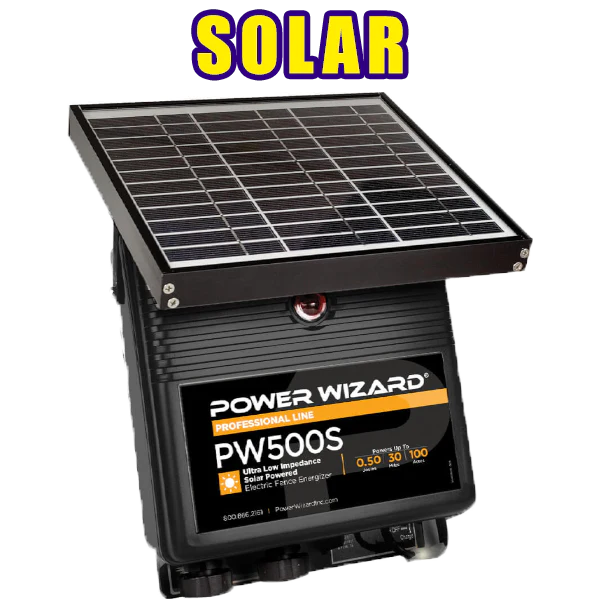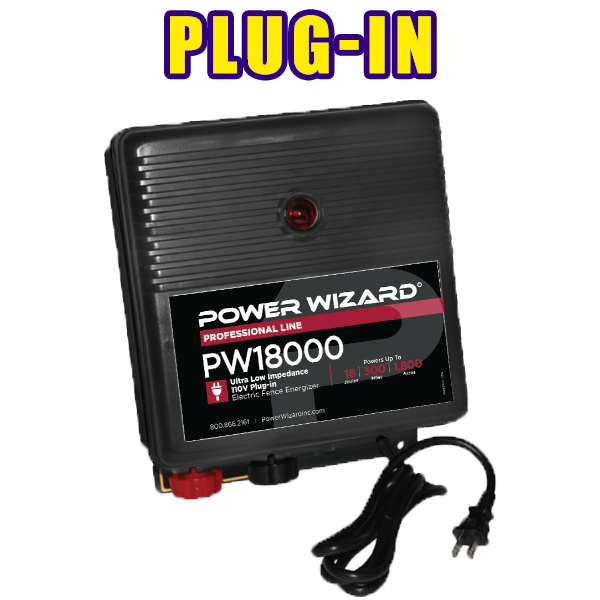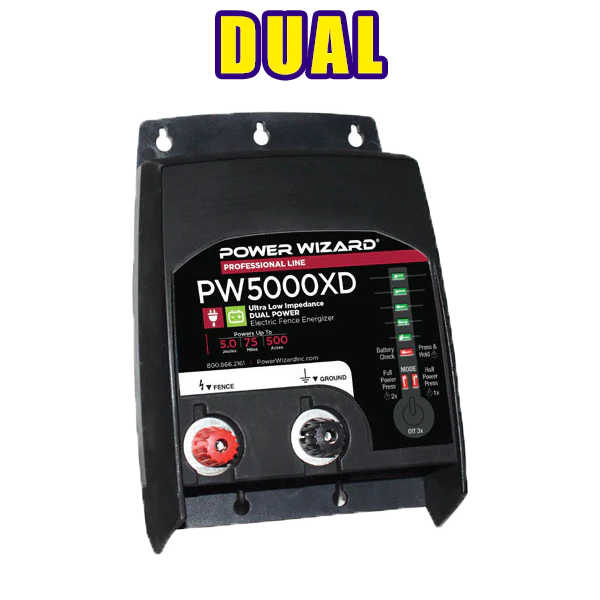Battery vs. Solar powered fence chargers
Share
When it comes to powering your electric fence without a plug, you have two main options: solar or battery. Both of these types of fence chargers have their own unique advantages and disadvantages, so it's important to weigh up your options before making a decision. In this blog post, we will take a closer look at solar vs battery powered electric fence chargers, comparing the pros and cons of each option to help you make an informed decision.
Solar Powered Electric Fence Chargers
Solar powered electric fence chargers are a popular choice for those who want to reduce their reliance on fossil fuels and save money on electricity costs. These chargers are powered by solar panels, which convert sunlight into electricity that is used to power the fence.
One of the main benefits of solar powered fence chargers is their eco-friendliness. Solar energy is a clean and renewable source of power, and by using a solar fence charger you can help to reduce your carbon footprint. These chargers are also very low maintenance, as they don't require any additional fuel or electricity to operate.
Another advantage of solar powered fence chargers is their cost-effectiveness. Although the initial investment may be higher than a battery powered fence charger, you will save money in the long run as you won't have to pay for any additional electricity. In addition, solar fence chargers are very durable and can last for many years with minimal maintenance, making them a great long-term investment.
However, solar powered fence chargers do have some drawbacks. One of the main drawbacks is that they are dependent on sunlight to operate effectively. If you live in an area with limited sunlight or experience frequent cloudy days, your fence charger may not produce enough power to keep your fence energized. Additionally, solar fence chargers can be less effective in cold weather, as the cold can reduce the efficiency of the solar panels.
Battery Powered Electric Fence Chargers
Battery powered electric fence chargers are another popular option for powering electric fences. These chargers are powered by a rechargeable battery, which stores electricity and delivers it to the fence as needed.
One of the main benefits of battery powered fence chargers is their flexibility. Unlike solar fence chargers, battery chargers are not dependent on sunlight to operate. This means that you can use them in any location, regardless of weather conditions or the amount of sunlight available. Additionally, battery chargers are generally more portable than solar chargers, making them a good option for those who need to move their fence frequently.
Battery powered fence chargers are also generally easier to install and maintain than solar chargers. They don't require any additional equipment or setup, and the battery can be easily replaced when it runs out of power.
However, battery powered fence chargers do have some drawbacks. One of the main drawbacks is the cost of replacement batteries. Depending on the size of your fence and the number of batteries you need, the cost of replacing the batteries can add up over time. Additionally, battery chargers may not be as reliable as solar chargers, as the battery may run out of power unexpectedly.
Conclusion
In conclusion, both solar and battery powered electric fence chargers have their own unique advantages and disadvantages. Solar chargers are eco-friendly and cost-effective in the long run, but may be less reliable in certain weather conditions. Battery chargers are flexible and easy to install, but the cost of replacement batteries can add up over time. Ultimately, the best choice for you will depend on your specific needs and circumstances. So, it is important to carefully consider your options before making a decision.



